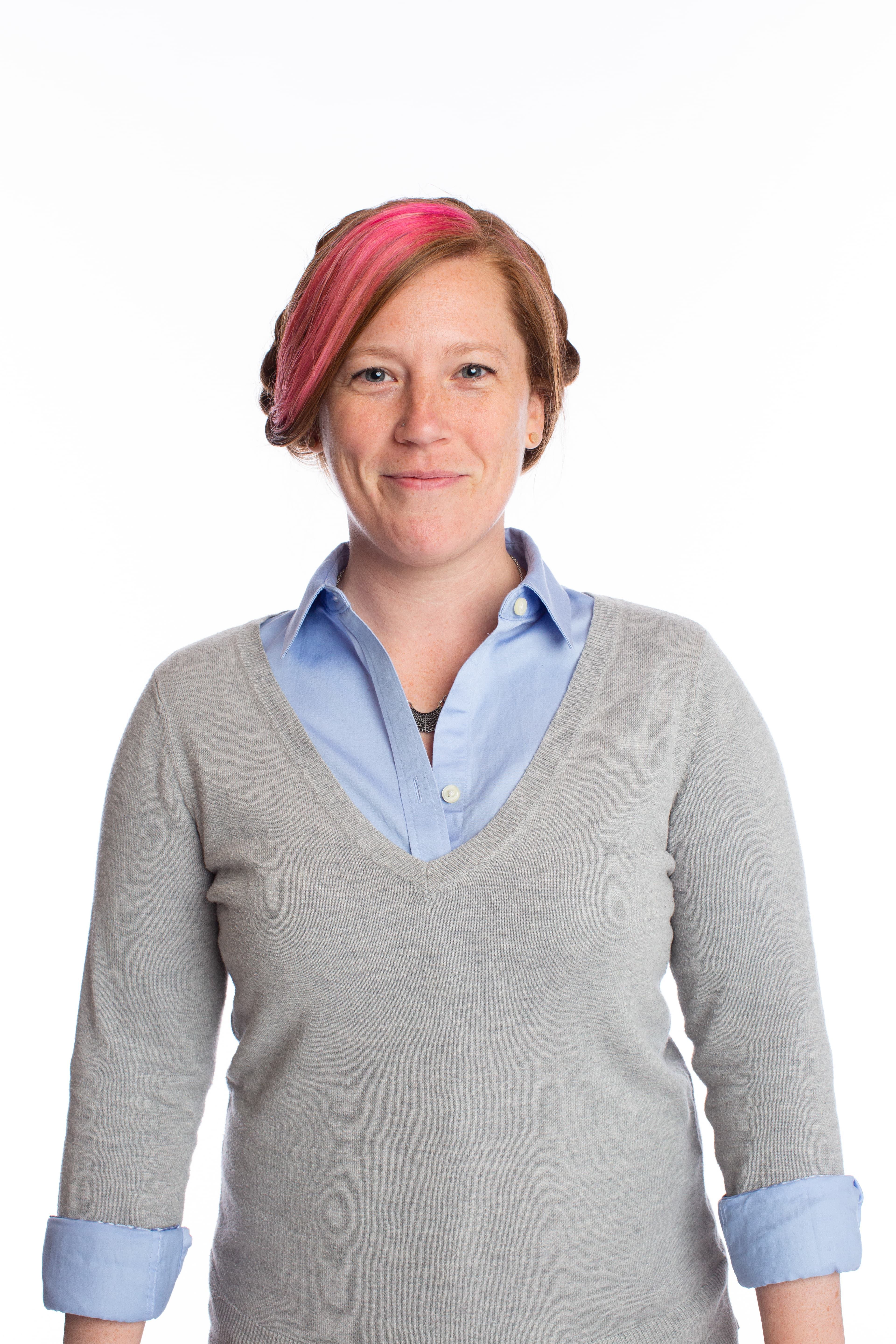
Making an impact is something Kathleen McCarty knows well. When she’s not making a ‘t-stop’ or ‘passing the star’ as Samwise Banshee on a roller derby track, she is working toward her PhD and leading discussions on race, gender and disability.
A Robert Wood Johnson Health Policy Research Scholar and Fellow, Kathleen is connecting with a multidisciplinary cohort of students across nation interested in inclusive health policy.
“As a scholar within that program, supported by OSU, I feel I’m getting such a rich, robust education and understanding for what I can and should be doing with my work,” she says. “I’m the first to tell people that research isn’t my strong suit; it’s not the thing that gets me up in the morning. It’s service, working with others that does. Being in this program makes me think about how research can help me engage in that service more. My experience is beyond what I ever thought possible.”
Connections and conversation extend to her cohort in the CPHHS as well.
“Faculty within kinesiology allow us the autonomy to literally say to them, ‘Hey, we don’t think we’re doing enough to understand race, gender and disability. Can we lead some discussions so we can all talk about this?’’
“The college has been open and supportive, and I’ve been able to have hard conversations with colleagues and professors,” she says. “I think OSU does a really good job of offering programs that help me develop a more critical mindset, particularly the dialogue facilitation lab through the Office of Institutional Diversity and the Social Justice Education Initiative with Jane Waite. But the reality is that OSU is a very white place. It’s important that we have a social justice mindset and build curriculum that’s more inclusive for people with disabilities and those from marginalized communities.”
Expecting to graduate in 2021 with a PhD in kinesiology with a concentration in adapted physical activity, Kathleen is considering her professional options – and where she can make the greatest impact.
“I’m keeping my mind open to the possibility of something in respect to policy or where I can advocate for the needs of the disability community and help uplift their voices in some way,” she says. “I’ve always loved teaching and coaching, and I’ve always sought out jobs and positions that allow me to center that. Academia might position me to continue centering teaching in a way that I love.”
Staying in academia also allows her to champion change from within.
“Even my own field is problematic in the way it views disability. By calling it a ‘special population,’ it’s already putting people in a norm-other binary. I have a critical perspective, but my optimistic side tells me I can work within academia to change these problematic structures.”
Life is the best teacher
Kathleen grew up in small town in Michigan she calls “shockingly like Corvallis,” and her parents both experience disability.
“Disability was always something I was aware of and saw a lot of nuance in,” she says. “My language in college was ASL, and I interned with an agency for the deaf outside of Detroit. A theme of disability has been prevalent in my life, but it wasn’t until much later that I discovered that in my career.”
A first-generation college student, she earned her undergraduate degree at Oakland University. She then moved to Atlanta and spent four years there weaving and whipping around the roller derby track at the semi-elite level. That experience ignited a love for sport, physical activity and coaching, which led her to San Diego. There, she worked in a variety of fitness jobs while earning her master’s degree in kinesiology/rehab science.

As part of her job working in an outreach clinic for adults with disabilities, she began researching similar programs offered by universities and discovered the college’s IMPACT program. Already considering a PhD, she says her discovery felt serendipitous.
“I thought, ‘Maybe I should apply to OSU and see what happens.’ So, I did! And I got in!
“I was privileged in that I just realized I’m a first-gen college student,” she says. “I say that’s privilege because I’m only now beginning to understand how and where it has hindered me. I had enough support around me to not realize that, even though I was crying on my first day of freshman orientation because I didn’t know I was supposed to pick classes and a major that day.”
Now, with less than a year until commencement and a new chapter begins, Kathleen has a new appreciation for the journey that brought her to this moment. Her life experiences, it turns out, made all the difference.
“I remember someone saying how much they appreciated the kinesiology program because faculty have a philosophy of ‘no walls’ – meaning they collaborate with others outside their discipline. That really resonated with me as someone who grew up doing theatre and communications, who then transitioned into physical activity, biomechanics, disability and policy.
“As someone who has lived a life before grad school, I can see how all of my experiences have come together to create this moment I’m in right now. To be able to use and blend my skills and put them into my work has been incredibly meaningful.”